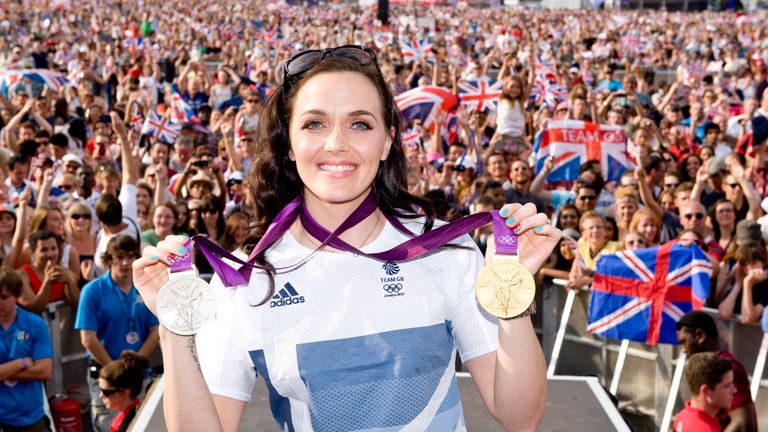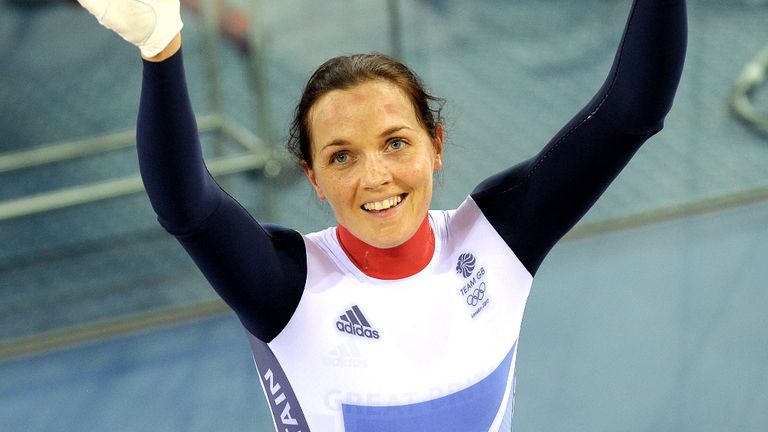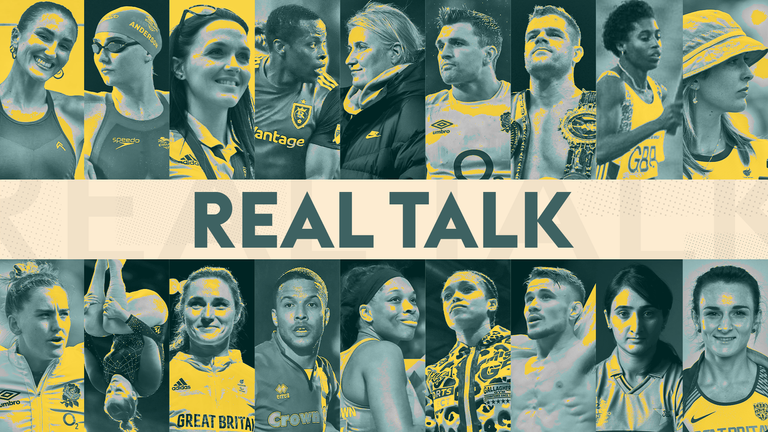Real Talk: Team GB’s Victoria Pendleton opens up on retirement struggles after London Olympics in 2012 | Cycling News

Olympic gold medal-winning cyclist Victoria Pendleton has opened up to Sky Sports about the difficulties of her transition to retirement, explaining how she felt “spat out” by the British Cycling system.
The 43-year-old picked up gold medals for Team GB at the 2008 Olympics in Beijing (Sprint) and 2012 Olympics in London (Keirin), also winning a further silver in London (Sprint), but retired from track cycling after the home Games aged 32.
Speaking to Sky Sports News as part of the Real Talk series, she claimed that thinking about retirement or what’s next was actively discouraged while she competed.
“I didn’t honestly invest much time thinking about it [retirement]. Mostly because I’d been very much led to believe by the people around me that you have to focus all your energy on this one thing if you want to be the best,” Pendleton said.
“Thinking about life after cycling and other career opportunities was a distraction. So I was actually discouraged from having anything else other than this cycling focus.
“I thought, I’ll cross that bridge when I come to it, genuinely. Even as I was nearing the end of my career, I didn’t really allow myself to think beyond the finish line at London 2012.
“When I took off my shoes, that was it. It was very much like a sudden deadline to my career. It was finished.”
For many, bowing out from a sport with two medals won for GB at a home Olympic Games looked a lovely way to finish. Not so for Pendleton, who admits her body was ready to continue.
“I’ve had a lot of time to reflect on my career, and some of my decision making, and also how I managed myself and the relationships around me in the coaching environment. I very much felt like I had no choice, I had to leave.
“Emotionally, psychologically, I had had enough. And I thought I cannot exist in this system anymore. I have to leave now.
“The only way I could justify that to myself, and to manage that feeling, was to tell myself it was only a stepping stone. You’re putting your whole cycling career into a tiny little stepping stone.
“It’s a really fantastic stepping stone, and it’s supported me for a long time, but it’s a stepping stone to what I’m going to do next. I really, truly deep down, convinced myself that’s what it was.
“I didn’t think I was done physically, which is hard. I was the fastest and strongest I’d ever been the moment I retired.
“I actually thought I was gaining a lot more knowledge and understanding of my own body and what I was capable of. I thought I had more to give. But the pay-off wasn’t big enough to keep me there: my happiness versus a potential another opportunity and Olympics.
“I very much felt like everyone had decided that when you get to 30, your time’s up anyway. So they, I think, were less willing.
“I think everyone assumed I’d go away and have children, and then I wouldn’t be interested any more. But there was a lot of assumptions made. I felt very pressurised to make a decision, and it did make me feel sad for a long time.”
When asked if British Cycling had offered support after her retirement, Pendleton said there was initially no contact after the 2012 Olympics.
Instead, she said she was left a handbag as a thank you gift in the Olympic Village.
“I very much felt like in some ways, I was treated like a 16-year-old girl. The same girl that came into the whole system,” she said.
“There were a few people there within my working environment who constantly, I’ve felt, were chipping away at my confidence. And I can honestly say, as a world and Olympic champion, I’d never been so insecure then as in my whole life.
“I think it’s almost controlling your performance to such an extent. They invest so much energy and emotion into your performance, they’re very hard on you and your choices, on what you do, where you go, what you eat, how much you sleep and all these things. Your life is very controlled.
“I just needed to break out of that, because I can’t feel so claustrophobic. I can’t do it any more. And I’m going to prioritise my own happiness over producing more medals or living this lifestyle?
“I didn’t receive anything, and I just left. For me, because of some of my challenging coaching relationships within the team, my heart was broken and I wanted to forget about it all.
“I was very much not engaged with British Cycling for many, many years. I felt I’d been kind of spat out the system a little bit in many ways.
“I got given a handbag when I left the Olympic Village. Basically a handbag was left on my bed to say thank you for my service. I didn’t see anybody, my coaches had already left the village, and I left. That was the end of my career.
“The handbag was a very lovely handbag, but something that kind of stuck like a thorn in my side is, a thank you would have been more than 1,000 handbags. And plus, why do you think I need a handbag? Did you give Chris Hoy a handbag?
“It was an effort to thank me but actually, they got this so wrong.”
Sky Sports asked British Cycling for its response to Pendleton’s claims, with performance director Stephen Park insisting that the culture is very different now.
“Fortunately, we’ve had a great opportunity to listen and learn from Victoria’s experiences over the years,” he said.
“The program, as it stands now, at Great Britain cycling is quite different to what it was in the time that Victoria is referencing in that 2008- 2012 period.
“And of course over that time, all of the people, almost without exception, that she is talking about in her interviews and her feedback, don’t work at British Cycling. Haven’t worked here for some number of years.
“I started as the performance director in 2017. We’ve had new staff and practices operating across that time and focus really, really hard on how to try and improve the culture positively. Over that time, the sport as a whole went through the cycling independent review in 2016.
“There was a lot of lessons we learned from that, but we’ve also tried to learn from each of the feedback we’ve had from all people, not just the stuff that was in the cycling independent review, but we’re continually trying to be lifelong learners as a team and how we can make things better.”
Park also insisted that Pendleton is now welcomed as part of the women’s sprint program to help deliver improvements to the culture.
“Fortunately, I think we’ve got really strong relationships between our coaches, our support staff and our riders right across the program now,” he added.
“A real sort of respectful relationship, and we’re pleased to be able to invite Victoria back to actually participate and support our women’s sprint program, which is the program she was part of.
“We have a whole cohort of women who are delivering to the very highest level worldwide and looking really good for performances in this coming Paris Olympics.
“So that said, we continue to listen to riders, to others, to feed back and to continue to try and improve the program, because we understand that will always be something we’ll have to work out: how can we try and change for today’s riders.
“How can we learn from the past and how can we move things forward? So it’s a challenge that we relish. It’s a challenge that we take part in.
“And we’re very fortunate to have the support of Victoria and many of her other alumni to help us on that journey.”
Follow Real Talk on Sky Sports News’ digital and social channels and watch the extended interviews on Sky Sports News, YouTube and on demand.
You can also download the podcast on Spotify and Apple, where you can listen to all the interviews and take a closer look at the meaningful conversations with an expert.
Ad content | Stream Sky Sports on NOW
Stream Sky Sports live with no contract on a Month or Day membership on NOW. Instant access to live action from the Premier League and EFL, plus darts, cricket, tennis, golf and so much more.
Get Sky Sports on WhatsApp
You can now start receiving messages and alerts for the latest breaking sports news, analysis, in-depth features and videos from our dedicated WhatsApp channel! Find out more here













